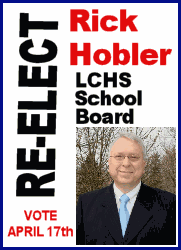|
On Friday, the Intergovernmental Panel
on Climate Change of the United Nations, comprised of respected
scientists and government officials from 113 countries, issued a new
report predicting that global warming will have dire effects
including drought, heat waves, rising sea levels, extinction of
species, hunger and disease. Burning fossil fuels is the main source
of the greenhouse gases that trap heat and warm the earth. Despite
the worldwide consensus -- reflected in the report -- that climate
change is imminent and its effects could be devastating, the federal
government has not taken serious action to reduce greenhouse gases.

And, the U.S. Supreme Court ruled April 2 that carbon dioxide is, in
fact, a pollutant and that the U.S. Environmental Protection Agency
has the authority under the federal Clean Air Act to regulate
greenhouse gases, in contrast to claims by the federal government
that it lacks such authority.
 We applaud the court's landmark
decision and are hopeful that the United States will soon join other
nations that have already committed to serious action to address
global warming. As the world's leading emitter of global warming
gases such as carbon dioxide, the United States has a special
responsibility to confront this looming threat to global ecology,
economies and public health. We applaud the court's landmark
decision and are hopeful that the United States will soon join other
nations that have already committed to serious action to address
global warming. As the world's leading emitter of global warming
gases such as carbon dioxide, the United States has a special
responsibility to confront this looming threat to global ecology,
economies and public health.
States in the Northeast and West Coast have shown that states do
not have to wait for federal action to take meaningful steps to
reduce
 greenhouse gases. Midwestern states, like Illinois and
Wisconsin, are now taking action to address the growing crisis of
global warming. greenhouse gases. Midwestern states, like Illinois and
Wisconsin, are now taking action to address the growing crisis of
global warming.
[to top of second column]
 |
 Both Illinois and Wisconsin have established statewide task
forces to suggest how our states can achieve meaningful reductions
in greenhouse gases while benefiting our states' economies and
environment through investment in new, clean technologies.
Both of our states aim to produce 25 percent of the electricity
and transportation fuels we need from clean, renewable energy
sources like biofuels and wind power by 2025. The windy plains and
vast fields of corn, soybeans and other energy crops make the
nation's heartland uniquely capable of achieving this ambitious but
attainable goal to reduce global warming while becoming more energy
self-reliant.

There is no challenge more pressing and more important to face
than protecting our planet for the benefit of future generations. As
Midwestern governors, we are proud to help lead our nation to a more
secure, sustainable and prosperous future where we can meet our
energy needs while protecting our planet.
[Text from file received from
the
Illinois Office of
Communication and Information]

 |